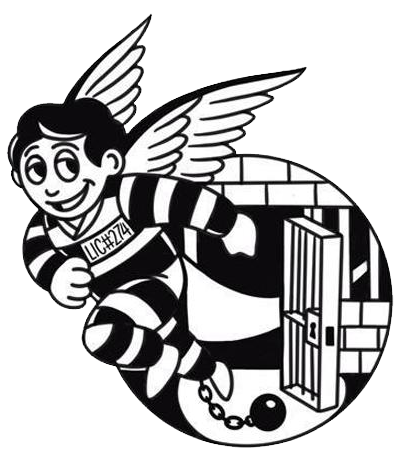Navigating the criminal justice system requires an understanding of legal vocabulary, particularly when it comes to arrest, detention, or obtaining pretrial release. Bail bonds are a legal and financial tool used to make sure that a defendant shows up for all court appearances. But without the right information, the procedure can be difficult due to the variety of legal terminologies used, including surety, collateral, arraignment, and forfeiture.
Having a thorough understanding of this legal vocabulary words is crucial for making wise decisions, regardless of whether you are a defendant, co-signer, or indemnitor. By simplifying the most crucial legal vocabulary words associated with bail bonds, this guide will enable you to understand the procedure with assurance and adhere to all court-mandated release requirements.
Why Is Legal Vocabulary Important?
Particularly for people who are not familiar with the criminal justice system, legal vocabulary can be terrifying. There is a lot of jargon in the legal vocabulary, which can further complicate an already stressful scenario, like getting arrested or posting bail. But knowing these concepts is not only beneficial, it is necessary.
Understanding the meaning of important legal terminologies helps you make quicker, more informed decisions whether you’re involved in the bail bond procedure, whether as a co-signer, a defendant, or a family member. It enables you to interact with your Bail Bondsman in Wylie, TX, court representatives, and lawyers more successfully. More significantly, it lowers your chance of making expensive or possibly dangerous legal errors by assisting you in understanding your rights and responsibilities.
For example, clarifying your responsibilities and maintaining the process can be achieved, by understanding the difference between bail and a bond, what a forfeiture means, or the function of an indemnitor. This information can also help avoid misconceptions that could lead to further court appearances, fines, or even an arrest.

List Of Legal Vobaulary Tersm
We’ve put together a list of key legal vocabulary words associated with bail bonds to help you feel more prepared and secure. Let’s get started and uncover the jargon of legal system.
1. Bail
Bail is a financial guarantee that an accused person provides to the court to make sure they will return for future court dates. But this bail amount is returned if the accused appera on all the hearings of the court. This is one of the most common word in legal vocabulary. If the judge sets bail at $5,000, the defendant must pay that amount (or arrange a bail bond) to be released from jail.
2. Bail Bonds
A bail bond is a contract between a defendant, a bail bondsman, and the court. The bail bond agent promises to pay the full bail amount if the defendant fails to appear in court. There are three types of bail bonds including cash bond, surety bond, and personal recognizance. In cash bond, full bail amount is paid in cash. Another word in legal jargon for bail bonds is surety bond. In this, bail is posted by a bail bondsman, usually for a fee (typically 10% of the total bail).
Third term in legal terminologies that you should know is personal recognizance, the person is released without paying bail, based on a promise to return to court.
3. Bail Bondsman or Bail Bond Agent
A licensed professional who provides bail bonds to defendants for a fee. They assume responsibility for ensuring the defendant appears in court. The fee paid to the bondsman is non-refundable. You should have information about this legal vocabulary word if you are going for bail bonds.
4. Defendant
This is also a common word in legal terminologies. The individual who has been arrested and is facing criminal charges is called the defendant.
5. Collateral
Property or assets offered to secure a bail bond. If the defendant skips court, the collateral may be seized. Examples of collaterals include car titles, real estate, jewelry, or other valuable items. You might not be familiar with this legal vocabulary word but you should know about it. It is worth considering if you do not have bail amount.
6. Cosigner or Indemnitor
In legal vocabulary, he is the person who signs the bail bond agreement and guarantees the defendant’s court appearances. They are financially responsible if the defendant doesn’t comply with the terms. In case of collateral, the indemnitor may also provide collateral.
7. FTA or Failure to Appear
When a defendant does not show up for a scheduled court date, in legal vocabulary, it is called failure to appear. The consequences of thai action include, a bench warrant may be issued for the arrest, bail may be forfeited, or may be additional charges could be filed.
8. Forfeiture
Forteiture is the loss of money or collateral when a defendant fails to meet the terms of the bail agreement. The most common example is failure to appear in the court. This doesn’t happen for minor offenses, but can be done if you take bail restrictions lightly.
9. Bench Warrant
As from the word itself, this legal jargon word means a warrant issued by a judge when a defendant fails to appear in court. This authorizes law enforcement to arrest the individual. Also, this is something that is done in severe cases.
10. Booking
The official process of recording an arrest. It includes fingerprinting, taking photographs (mugshots), and gathering personal information. This is one of the initial steps when you are arrested.

11. Arraignment
Most of the people are not familiar with this legal terminology used in law. This is the first court appearance of defendant, where formal charges are read, and bail may be set. The defendant can also enter a plea (guilty, not guilty, etc.). After this, you can go to bail bond agents to help you for the bail of your loved ones.
12. Custody
Everyone knows about this legal vocab word. Being held in jail or under law enforcement supervision before trial or after conviction is called custody. In custody, the defendants are held in a different place from regualr prisoners.
13. Pretrail Release
As from the name, this legal terminology word means a release from custody before the trial begins, either through bail, a bond, or on one’s own personal recognizance.
14. Surety
A person or company that takes responsibility for someone else’s performance of an obligation. In case of bail bonds, the surety is often the bail bond company. As they provide the complete amount of bail for you.
15. Bail Hearing
This is the first hearing of a court. A special court session where a judge determines whether bail should be granted and, if so, what amount is appropriate. This vocabulary term is important and you should be familiar with this, if your loved one is in jail.
16. Acquittal
In vocabulary of legal terms, when a defendant is acquitted, it indicates that they were found not guilty of the allegations against them. The defendant is cleared innocent of the charge by this decision.
17. Remand
When a judge orders the defendant to be held in custody without bail, often due to flight risk or danger to the public. This only happens for serious criminals because they can be a threat to public or may glee away.
18. Exoneration
This lega vocabulary word refers to the final decision of court. When the court releases the bail bond obligation after the case concludes and all appearances are made. This also releases the indemnitor or cosigner from financial responsibility.
19. Warrant
A legal document issued by a judge authorizing an arrest, search, or seizure. This usually results from failure to appear or new criminal charges.
20. Felony
A felony is a serious criminal offense. When a defendant is charged with a felony, the court usually sets a significantly higher bail amount due to the severity of the crime. It is not easy to get a bail in these type of cases.
Tips to Navigating the Bail Bond Process
You may navigate the bail bond process with ease and confidence if you understand these legal vocabulary words, take the proper approach and get help from a reliable company like Bring Em Home 24/7 Bail Bonds. Begin by asking questions; our knowledgeable representatives are there to answer any of your enquiries and ensure that you are never in the dark about any legal jargon or procedure.
Before signing any bail bond arrangement, always read the tiny print to make sure you understand all of your financial and responsibility requirements. Being truthful is crucial when supplying personal or case-related information because giving false information could cause the procedure to become more complicated or postpone your release. Above all, make sure you show up for all of the planned court dates if you have got the bail. If you don’t, you risk a warrant, bail forfeiture, and perhaps re-arrest. You can count on Bring Em Home 24/7 Bail Bonds to provide you with competent and considerate guidance at every turn.

Final Thoughts
Gaining a basic understanding of legal vocabulary can greatly lessen the anxiety and uncertainty that are frequently connected to the bail bond procedure. A thorough understanding of the legal vocabulary enables you to make wise decisions, interact with your bail bondsman in an efficient manner, and carry out your responsibilities under the bond agreement, whether you’re helping a loved one who has been placed under arrest or handling the situation yourself as a defendant.
Surety, indemnitor, and forfeiture are not only legal words; they have a real impact on your obligations and the result of the bail procedure. Understanding the meaning of these terms can assist avoid expensive errors and guarantee adherence to all court rules, such as required appearances and release conditions.
If you or someone you know has been arrested in Dallas, don’t face the legal system alone. Reach out to a reliable local bail bond agency like Bring Em Home 24/7 Bail Bonds. Our team of Bail Bondsman in Wylie, TX will explain the legal vocabulary, walk you through every step of the bail process, and work quickly to secure a timely release. We’re committed to helping you regain your freedom while navigating the complexities of the justice system with confidence.

